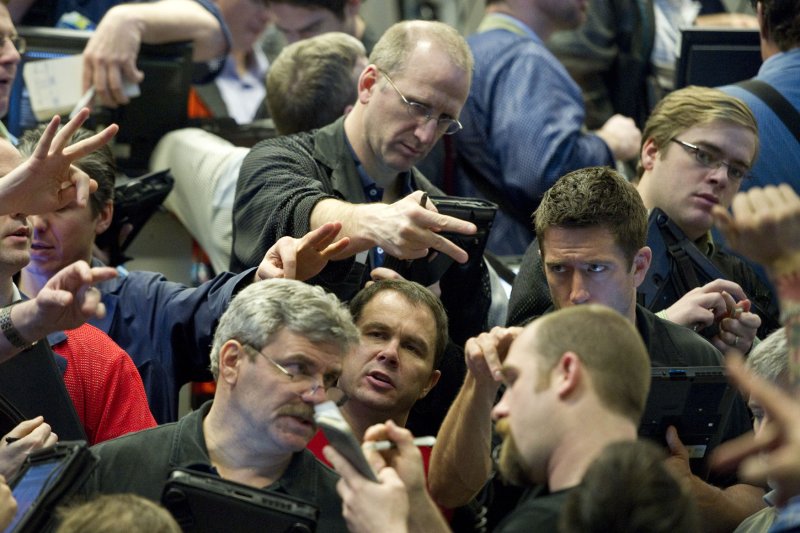Crude oil prices lose sight of the $80 per barrel mark amid concerns about economic volatility. File Photo by Brian Kersey/UPI |
License Photo
May 24 (UPI) -- European concerns about broad-based economic volatility and fretting over supply-side shocks helped send crude oil prices sharply lower early Thursday.
Crude oil prices touched $80 per barrel on Monday after the U.S. government increased sanctions pressures on Iran and Venezuela. Markets have since bounced down from that ceiling amid signs of an economic downturn and early suggestions that members of the Organization of Petroleum Exporting Countries are mindful of the potential for additional losses from member states Iran and Venezuela.
Minutes from meetings of the European Central Bank on Thursday revealed concerns about a spillover impact from volatility in overseas markets.
"A surge in volatility in U.S. stock markets in early February highlighted the current fragile market sentiment," the ECB's statement read.
U.S. markets see-sawed amid concerns of a trade war erupting with China, which would have significant demand impacts globally. Those concerns have ebbed in recent days, but remain unsettled. U.S. President Donald Trump escalated those concerns, however, by calling for tariffs on automotive imports on national security grounds.
The price for Brent crude oil, the global benchmark, was down 1.4 percent as of 9:15 a.m. EDT to $78.68 per barrel. West Texas Intermediate, the U.S. benchmark for the price of oil, was down 1.6 percent to $70.67 per barrel.
Minutes released Wednesday by the U.S. Federal Reserve showed that, stemming from the same market volatility noted by the ECB in early February, "some investors may have become more cautious." There were also some inflationary pressures emerging because of the "notable rise in crude oil prices."
Those oil prices may be impacting consumer behavior in the United States, the world's largest economy, because of increases in retail gasoline prices. That has stirred a bipartisan debate among U.S. lawmakers over U.S. energy policies, both foreign and domestic.
The spike in crude oil prices, meanwhile, has caught the attention of the world's largest oil producers. After meeting in St. Petersburg with his Emirati and Saudi counterparts, Russian Energy Minister Alexander Novak said he was on the same page as his OPEC counterparts regarding the market.
Several media outlets reported this week that OPEC members may relax compliance with a market strategy to ease the surplus on the global energy market.















